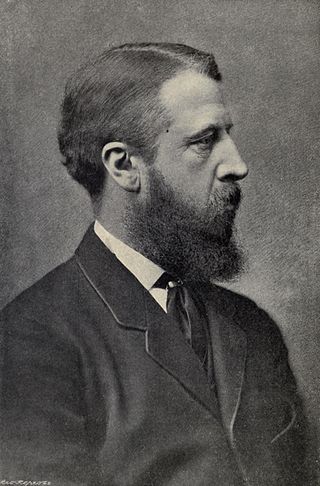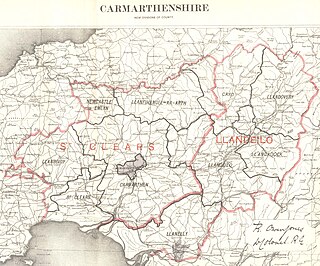Related Research Articles

Screaming Lord Sutch was an English musician and perennial parliamentary candidate. He was the founder of the Official Monster Raving Loony Party and served as its leader from 1983 to 1999, during which time he stood in numerous parliamentary elections. He holds the record for contesting the most Parliamentary elections, standing in 39 elections from 1963 to 1997. As a singer, he variously worked with Keith Moon, Jeff Beck, Jimmy Page, Ritchie Blackmore, Charlie Watts, John Bonham, Noel Redding, Mitch Mitchell and Nicky Hopkins, and is known for his recordings with Joe Meek including "Jack the Ripper" (1963).

The 1983 United Kingdom general election was held on Thursday 9 June 1983. It gave the Conservative Party under the leadership of Margaret Thatcher the most decisive election victory since that of the Labour Party in 1945, with a majority of 144 seats and the first of two consecutive landslide victories.

The 1970 United Kingdom general election was held on Thursday 18 June 1970. It resulted in a surprise victory for the Conservative Party under leader Edward Heath, which defeated the governing Labour Party under Prime Minister Harold Wilson. The Liberal Party, under its new leader Jeremy Thorpe, lost half its seats. The Conservatives, including the Ulster Unionist Party (UUP), secured a majority of 30 seats. This general election was the first in which people could vote from the age of 18, after passage of the Representation of the People Act the previous year, and the first UK election where party, and not just candidate names were allowed to be put on the ballots.

The 1935 United Kingdom general elections was held on Thursday November 14, and resulted in a large, albeit reduced, majority for the National Government now led by Stanley Baldwin of the Conservative Party. The greatest number of members, as before, were Conservatives, while the National Liberal vote held steady. The much smaller National Labour vote also held steady but the resurgence in the main Labour vote caused over a third of their MPs, including National Labour leader Ramsay MacDonald, to lose their seats. It was the last election in which the largest party won a majority of votes cast.

The 1918 United Kingdom general election was called immediately after the Armistice with Germany which ended the First World War, and was held on Saturday, 14 December 1918. The governing coalition, under Prime Minister David Lloyd George, sent letters of endorsement to candidates who supported the coalition government. These were nicknamed "Coalition Coupons", and led to the election being known as the "coupon election". The result was a massive landslide in favour of the coalition, comprising primarily of the Conservatives and Coalition Liberals, with massive losses for Liberals who were not endorsed. Nearly all the Liberal MPs without coupons were defeated, including party leader H. H. Asquith.

The 1880 United Kingdom general election was a general election in the United Kingdom held from 31 March to 27 April 1880.

Hartlepool is a borough constituency represented in the House of Commons of the UK Parliament by Jill Mortimer of the Conservative Party from 2021. The constituency covers the town of Hartlepool plus nearby settlements.
Frederick Walter Scott Craig was a Scottish psephologist and compiler of the standard reference books covering United Kingdom Parliamentary election results. He originally worked in public relations, compiling election results in his spare time which were published by the Scottish Unionist Party. In the late 1960s he launched his own business as a publisher of reference books, and also compiled various other statistics concerning British politics.

Southport is a constituency in Merseyside which has been represented in the House of Commons of the UK Parliament since 2017 by Damien Moore of the Conservative Party.

Eastbourne is a constituency for the House of Commons of the UK Parliament. It was created as one of nine in Sussex in 1885, since when it has reduced in geographic size reflecting the growth of its main settlement, Eastbourne.

St Ives is a parliamentary constituency covering the western end of Cornwall and the Isles of Scilly. The constituency has been represented in the House of Commons of the UK Parliament since 2015 by Derek Thomas, a Conservative MP.
The National Fellowship was a minor right-wing libertarian conservative political party in the United Kingdom.
Isle of Ely was a county constituency represented in the House of Commons of the Parliament of the United Kingdom, centred on the Isle of Ely in Cambridgeshire. Until its abolition in 1983, it elected one Member of Parliament (MP) by the first past the post system of election.
The 1940 Kettering by-election was a parliamentary by-election held on 6 March 1940 for the British House of Commons constituency of Kettering in Northamptonshire.
The 1929 Bishop Auckland by-election was a parliamentary by-election held on 7 February 1929 for the British House of Commons constituency of Bishop Auckland in County Durham.
The 1960 Bolton East by-election was a by-election held for the British House of Commons constituency of Bolton East in Lancashire on 16 November 1960. It was won by the Conservative Party candidate Edwin Taylor.
George Andrew Leslie was a Scottish politician and veterinary surgeon. He was the Scottish National Party (SNP)'s Senior Vice-Chairman from 1969 to 1971.

The East Carmarthenshire by-election was a Parliamentary by-election held on 22 August 1912. The constituency returned one Member of Parliament (MP) to the House of Commons of the United Kingdom, elected by the first past the post voting system.
The 1916 Liverpool East Toxteth by-election was a parliamentary by-election held in England on 21 February 1916 for the House of Commons constituency of Liverpool East Toxteth.
References
- 1 2 F. W. S. Craig, Minor Parties at British Parliamentary Elections
- 1 2 "From our archives", Bolton News , 15 September 2010
- 1 2 3 4 5 David Boothroyd, The History of British Political Parties , p.209
- ↑ British Parliamentary by-elections: Bolton East 1960
- ↑ Dod's Parliamentary Companion (1967), p.481
- ↑ "UK General Election results March 1966 Archived 2011-08-11 at the Wayback Machine ", Richard Kimber's Political Science Resources